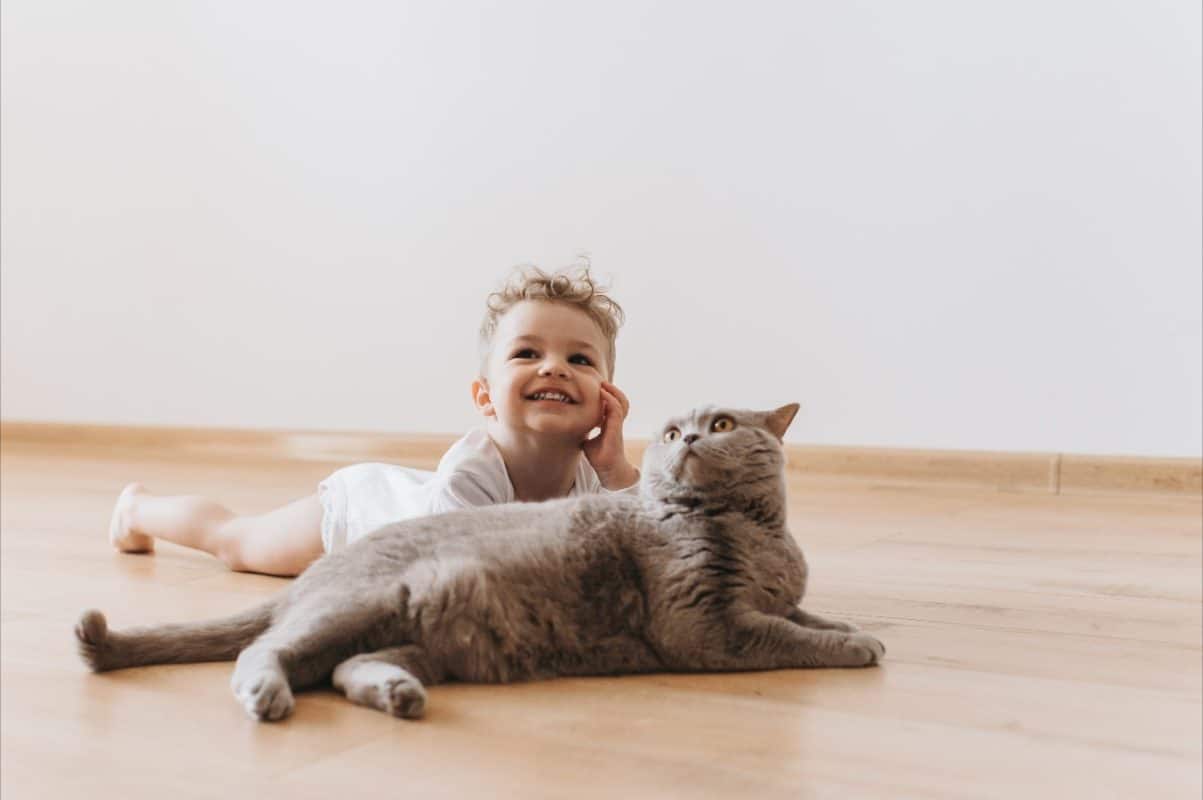Everything, Cats, Health care
Cats and Babies
You’re expecting a baby, and you already have a cat in the family. Your friends and relatives are telling you that you can’t keep your cat when the baby arrives. Do cats smother or suck the breath out of babies? Is it safe for cats and babies to live together?No, the old tales are not true, and yes, it is usually safe for babies and cats to share a home.
Do cats harm babies?
Before Sudden Infant Death Syndrome (SIDS) had a name, babies were sometimes found suddenly dead without an explanation, and a cat might have been in the vicinity. With nothing else to blame, the rumor that cats smother babies circulated. There is no evidence to support this theory, though.
Some cats like to sleep with people, including babies. It’s best not to leave babies or small children alone with cats. The child may unknowingly hurt the cat, and the cat may react with her claws.
Toxoplasmosis, a parasitic infection that people can get from the feces of infected animals, is a risk for pregnant women. Chances are that anyone who has lived with cats for some time has already been exposed to it. If you’re pregnant, it’s best to have your partner clean the litter box to reduce your risk of exposure to toxoplasmosis.
Babies from a cat’s point of view
Think of the situation the way your cat sees it. She’s been your baby and may have been getting all the attention, and then this noisy creature that smells funny comes into the home and diverts attention from you. She may feel sibling rivalry, and she may want to cover up those foreign smells.
On the other hand, if your cat continues to get some attention from you or your partner, she’ll feel less deprived. She might regard the baby as a family member that needs her protection.
As long as your cat gets enough attention and is allowed to feel connected with the baby, she will more than likely accept the baby into the family.
Your baby’s room and your cat
If you allow your cat in your baby’s room, consider getting a crib tent, which is a tent-like netting structure that fits over the crib. It prevents babies from climbing or falling out of cribs and cats from climbing in.
To keep your cat out of the baby’s room entirely, any of these methods stop the cat from entering the baby’s room:
- Always keep the door to the baby’s room closed when the baby is in the room.
- Put a screen door on the baby’s room so that your cat can see what’s happening without being able to go in.
- Place CatScram silent electronic cat repellent at the door to the baby’s room.
In addition, if the baby’s room is on the ground floor and your cat goes outdoors, put a screen on the window so that your cat can’t enter the room through the window if it’s open.
Preparing cats for a baby in the household
Start preparing your cat for a newborn baby before the baby arrives.
- When you’re getting the baby’s room ready for the baby, allow the cat to explore the room. She’ll be less curious about it after the baby arrives if she’s allowed to investigate it beforehand.
- Bring any flea problems under control, and check with your veterinarian to make sure that the flea treatments are safe in a household with a baby. Have your cat dewormed if she has worms.
- Before the mother and baby come home from the hospital, get the newborn baby’s scent on a towel or cloth to be taken home for the cat to smell. Your cat will then recognize the baby’s scent right away when the baby joins the household.
After the baby comes home
Your cat will probably be curious about the new human in her home. Allow her to sniff the baby or at least the blanket that the baby is wrapped in.
You will naturally have less time to spend with your cat when you have a baby to take care of. Ask your partner to give the cat more attention if possible. When you have visitors, encourage them to pet and play with your cat too.
When the baby starts to crawl, keep cat food dishes and the cat’s litter box out of your baby’s sampling reach.
Always supervise the time that your baby and your cat spend together. With the right preparations, though, babies and cats can become friends.


